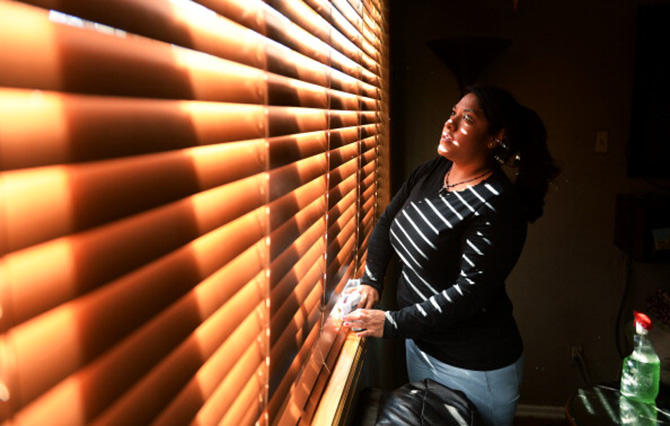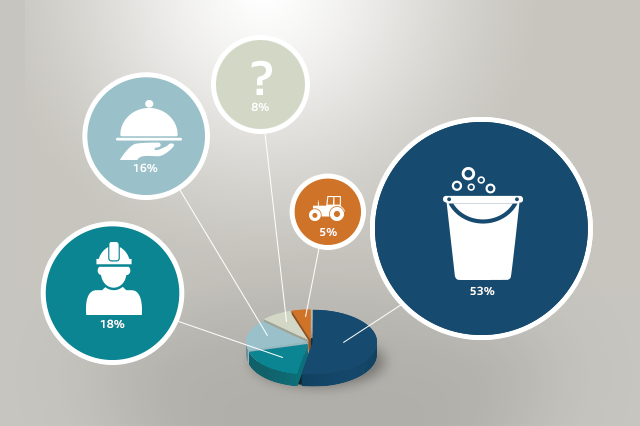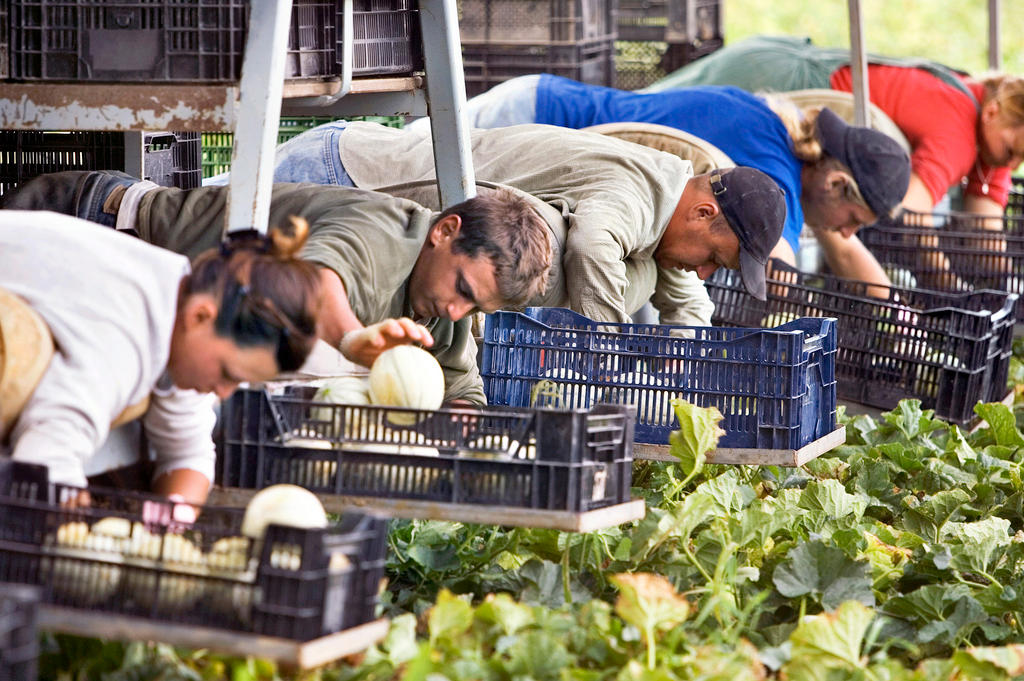Study examines health of Geneva’s undocumented migrants

Little by little, Geneva is discovering more about the thousands of undocumented immigrants thought to be in the region. The initial results of a four-year study into the health and living conditions of illegal and regularised migrants have some important early findings.
Around 76,000 illegal immigrants are believed to be living in Switzerland (see infobox below). Of these, canton Geneva is home to 13,000. In 2015, the local and federal authorities launched a unique pilot scheme, known as Operation Papyrus, that looks set to grant around 2,000 long-term undocumented migrants in Geneva official resident permits when it concludes at the end of this year.
In parallel to the launch of Papyrus, a team of researchers, led by the University of Geneva, initiated a four-year study into the living conditions of illegal immigrants in Geneva and the impact of the regularisation process. They interviewed 450 undocumented migrants – 300 of whom benefited from the Papyrus scheme.
One year into the project, the team presented several initial results last monthExternal link. They found that 38% of illegal migrants refuse to seek health care due to the high costs, compared to 14% of Swiss residents and 22% of those who benefited from the Papyrus scheme.
Among illegal migrants who had no basic health insurance, chronic illnesses were more present. Mental health problems were also more common, and signs of depression were identified among 60% of those questioned.
“Poor mental health due to exposure to different sources of stress is worrying,” Parchemins study co-author and Geneva University Hospital doctor Yves Jackson told the Tribune de Genève newspaperExternal link. “Depression and anxiety are often of secondary concern, but they have a very clear impact on quality of life.”
The findings revealed more about people’s employment and financial situations. They confirmed that the market for domestic workers appeared to regulate the flow of illegal workers to Geneva. Most were women responding to the local market’s demand for domestic help. Average monthly salaries varied from CHF1,600-2,800 ($1,607-2,813); the amounts were higher for those who had been regularised or had filed an application.
What happens after Papyrus?
While the university study, funded by the Swiss National Science Foundation, is set to continue over the next few years, all eyes are on the Papyrus project. The pilot scheme is due to end this year, and the authorities are expected to make an evaluation and official announcement in the coming weeks. But there is great uncertainty about what comes next and the situation for future requests for regularisation in Geneva.
“We have great hope that something will continue and there are signs, but much depends on the new justice minister [Karin Keller-Sutter] in Bern,” said Remy Kammermann, a lawyer with the Protestant Social Centre.
Geneva has gone much further than other Swiss regions in assisting sans papiers. But there have been important developments in a few cantons.
Last month, Zurich’s city parliament voted to introduce identity cards for all residents, including those who are in the country illegally. The city council, which had opposed the idea, now has two years to draft a bill to this effect.
The so-called “Züri City Card” would allow residents to identify themselves to the authorities, in particular the police. Supporters also want the card to allow holders access to public and private services without fear of arrest, as is done in New York. Other cities, like the Swiss capital Bern, are also considering introducing a similar “City Card”.
Meanwhile, Sunday’s Il Caffe newspaper reported that in the Italian-speaking canton of Ticino a cantonal directive issued in August requires health professionals working for the cantonal health body (EOC) to “systematically indicate to the authorities any individuals without documentation, presumed to be asylum seekers, foreigners in transit or suspects who arrive at emergency wards alone or by ambulance”.
Cristina Oberholzer Casartelli, director of the Office for Social Support and Integration, which is behind the measure – unique to Ticino – told Le Temps newspaper on MondayExternal link that it did not wish to interfere in medical activities, but that the instruction was for administrative and accounting purposes to “facilitate the issuing of bills for health services provided by EOC”.
However, local doctors and health officials have expressed serious concerns about the aims of the directive, stating that a doctor’s role is to look after patients and not to denounce those who may be illegal immigrants.
The most recent comprehensive study by the State Secretariat for Migration found that in 2015 there were 76,000 undocumented migrants in Switzerland, of whom 12% were minors. Almost half are believed to reside in four cantons: Zurich (28,000), Fribourg (20,000), Geneva (13,000) and Vaud (12,000).
In all, 43% were from Latin America, mostly Ecuador, Bolivia and Brazil. Some 24% came from European countries outside the European Union and the European Free Trade Area (EFTA), including many from the former Yugoslavia. Others came from Africa (19%) and Asia (11%).
Most undocumented migrants work in domestic jobs, construction, hospitality and agriculture.
The study showed that 19% of them had lived in Switzerland for over ten years, 35% for five to ten years, 25% for less than five years and 21% for less than a year.

More
A new life for 1,000 illegal immigrants in Geneva

In compliance with the JTI standards
More: SWI swissinfo.ch certified by the Journalism Trust Initiative




You can find an overview of ongoing debates with our journalists here . Please join us!
If you want to start a conversation about a topic raised in this article or want to report factual errors, email us at english@swissinfo.ch.